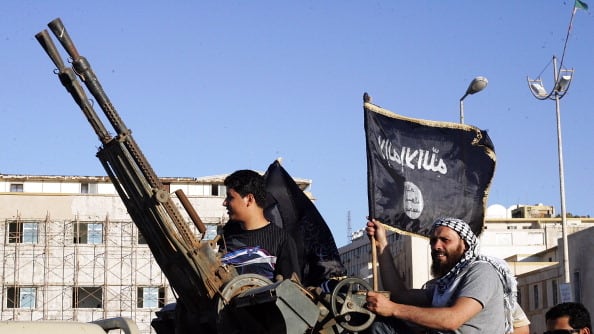
My column for the National Post reflects on President Obama's decision to embrace political Islamism.
Barack Obama got super lucky in the second presidential debate last week. Mitt Romney made a rare mistake, and the president took brutal advantage. Clever advantage too, for the governor’s mistake enabled the president to side-step what otherwise would have been a discussion that is deadly dangerous to him.
Romney’s mistake, of course, was to assert that the president waited 14 days to use the phrase “act of terror” to describe the Sept. 11 attack on the American consulate in Benghazi, an attack that killed four Americans including the ambassador to Libya.
You can see why Romney made his mistake, but a mistake it was. On Sept. 12, the president had said this: “No acts of terror will ever shake the resolve of this great nation, alter that character, or eclipse the light of the values that we stand for. “
People familiar with the language of presidents will understand what Obama was doing here. Notice he did not say: “This act of terror.” Instead, he offered a statement of principle about acts of terror in general, avoiding mention of whether the particular incident in Benghazi happened to belong to that category.
The president’s words gave him deniability in two directions: He protected himself against Republican charges just like the charge Romney leveled at him, while simultaneously refraining from any definitive characterization of the attack as terrorism.
The language was ambiguous — and intentionally ambiguous. (A statement like this would have been reviewed by at least a dozen senior White House staff, including both political and counter-terrorism advisers, and then circulated to relevant officials at State, CIA, Defense and maybe the Department of Justice, too.
Still, Romney led with his chin, and the president walloped him. By delivering the wallop, Obama also prevented the follow-on challenge before it could even be framed, and that challenge was this:
Why was the administration so eager to represent the Benghazi attack as a response to a YouTube video? Pulitzer-worthy reporting by my Daily Beast colleague Eli Lake has established that U.S. intelligence quickly ascertained that the Benghazi attack had been planned in advance; that it was organized by an al-Qaeda affiliate group operating inside Libya; that the attackers had surveilled the targeted consulate before the assault; that they maintained communications security in a way consistent with a trained force; and that they directed their firepower skillfully not only against the consulate, but also against a nearby CIA annex.
Yet despite this knowledge, and with very rare exceptions, the administration for almost two weeks mischaracterized the incident.
Again: why?
Here’s why. Libya was fully Obama’s war. He made the decision to intervene to overthrow Muammar Gaddafi, and he decided on the nature of the intervention. Afterward, he took credit for the result: a dictator deposed, elections organized, without any long-term American presence in the country. Compared to Afghanistan or Iraq, Libya looked at first like a cheap and easy success.
But events have shaken the Obama narrative about Libya. Despite the elections, there is no effective government in Libya. The eastern half of the country is controlled by armed militia groups imbued with al-Qaeda ideology — to the point where (The New York Times reported Friday) the presumed ringleader of the attack on the Benghazi consulate could hold a press conference on an open-air patio without fear of apprehension or retaliation.
Suddenly, Libya does not look like such a big success. Gaddafi was nasty, but he had long ago ceased to be a nuisance for the United States. If overthrowing him created an al-Qaeda romper room a short boat ride from NATO ally Italy — that would be a very bad and embarrassing result.
The sophisticated criticism of President Obama’s Libya policy is this:
Read the whole thing at the National Post.






